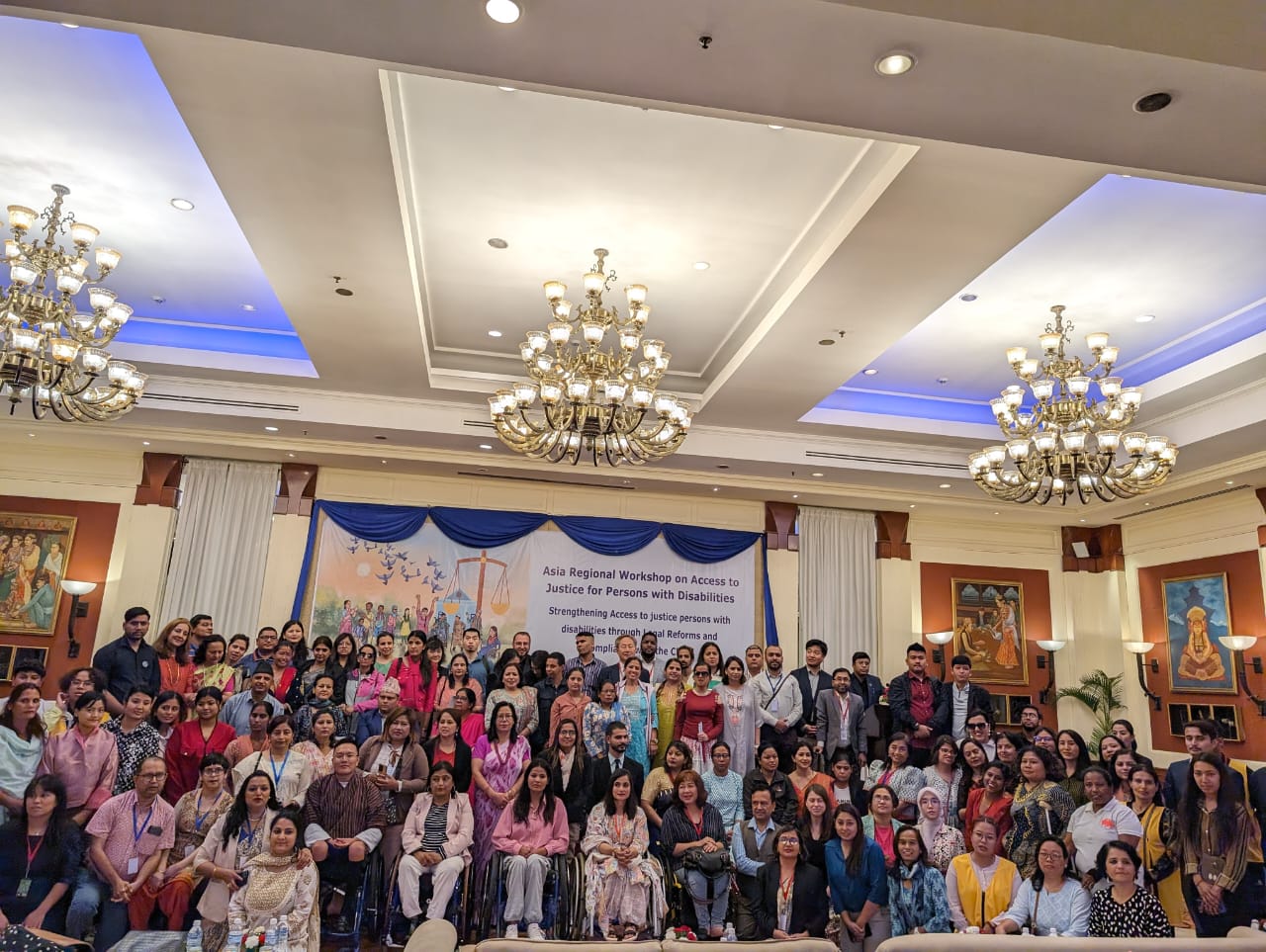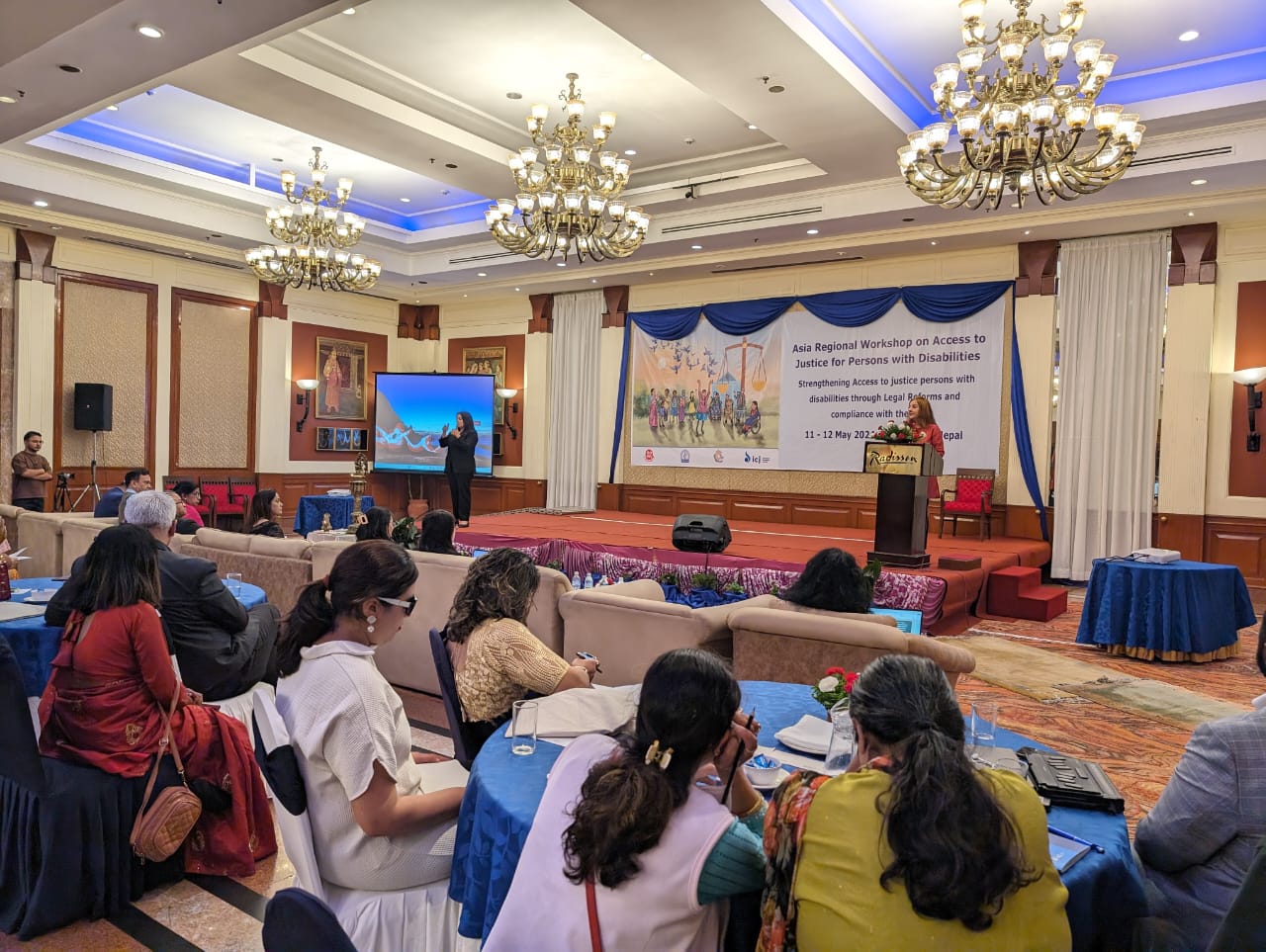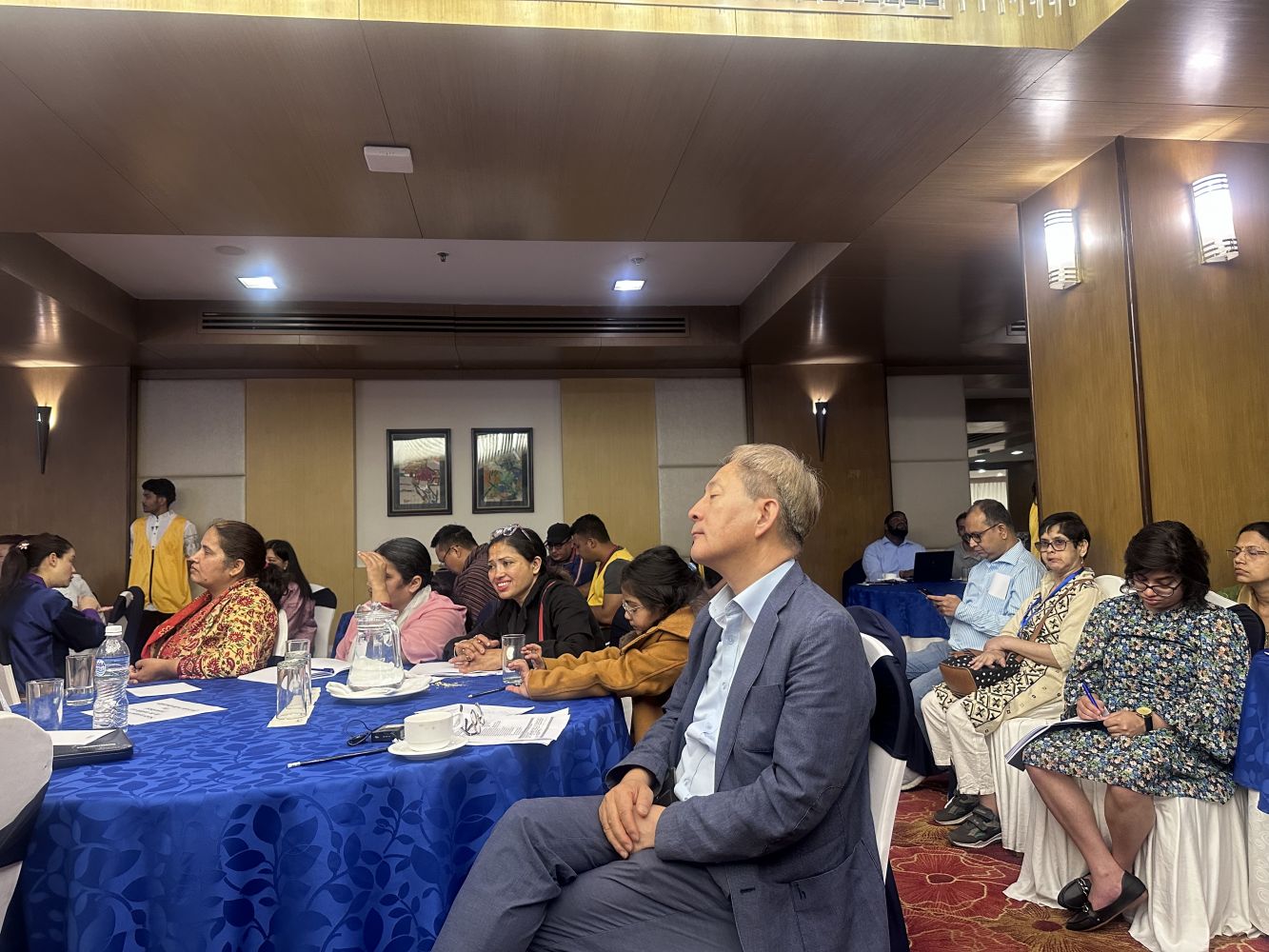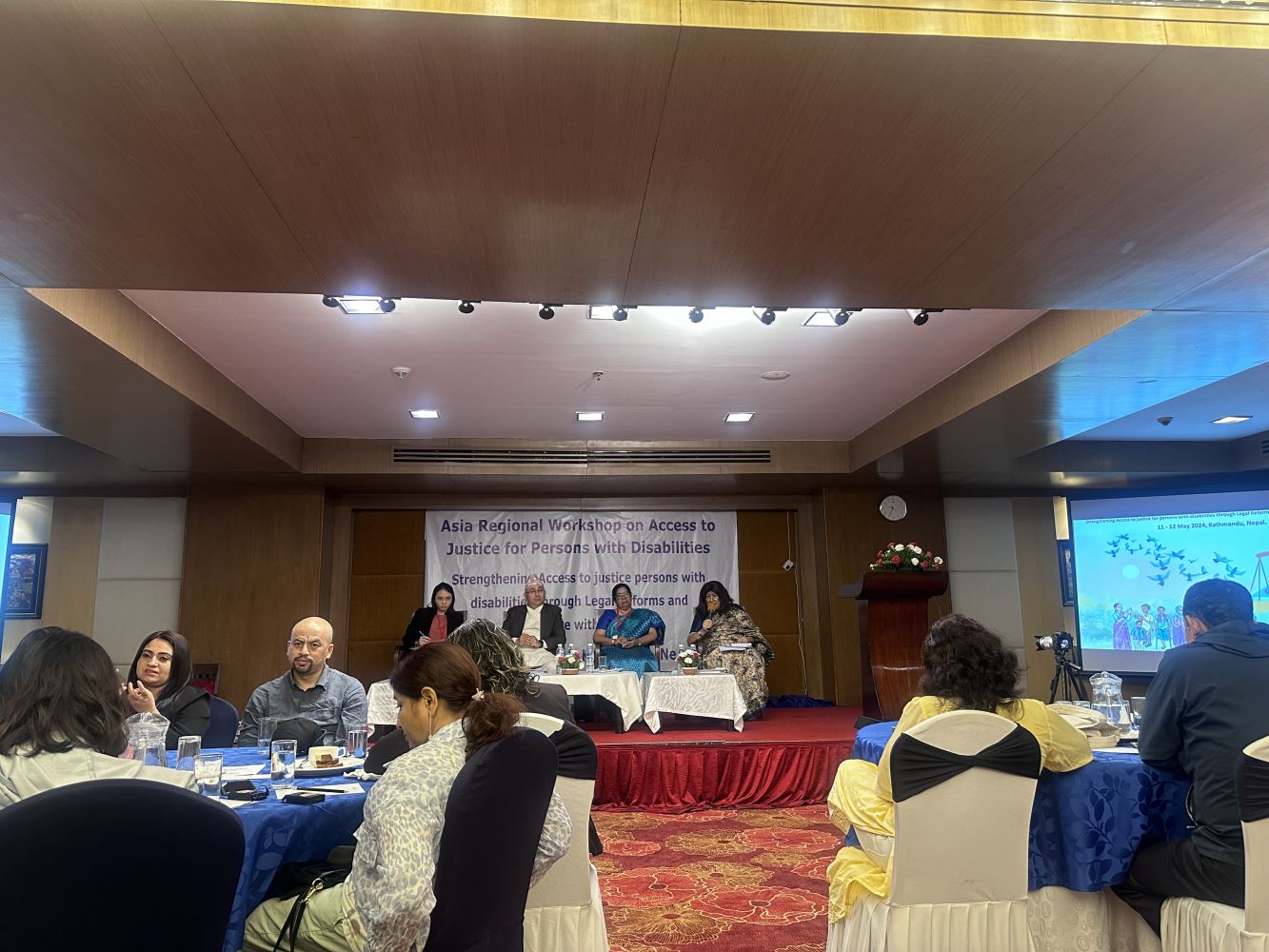
SATV, 12 May. "Asia Regional Workshop on Access to Justice for Persons with Disabilities", an event projecting the idea of “Strengthening access to justice persons with disabilities through legal reforms and compliance with the CRPD” is being continued today in Kathmandu’s Radission hotel. The inaugural session was organised for two days i.e 11th and 12th of May.
Nepal Disabled Women Association(NDWA) in support of KOSHISH, Transforming Communities for Inclusion and International Commission of Jurists jointly organised the event. The workshop aimed to to identify and understand the challenges faced by persons with disabilities in accessing justice and propose policy reforms to enhance access to the justice for persons with disabilities.
The event was formally inaugurated by Ms. Tika Dahal, President of NDWA and with lighting of lamp by honourable Mr. Kalyan Shrestha, former Chief Justice and ICJ Comissioner. This opening session was moderated by ICJ Legal Adviser Karuna Parajuli.

The event was opened with an inclusive dance from women and girls with disabilities and followed by the storytelling of the journey towards psychological rehabilitation and living independently by Ms. Kamala Poudel from KOSHISH.
Similary, ICJ Asia Pacific Regional Director Melissa Uprety highlighted on the “The legal recognition of multiple and intersecting forms of discrimination – and how these arise from unequal power relations and manifest in major disparities in access to services as well as stereotypes and stigma - is a vital first step to address and, ultimately, enforce the human rights of women with disabilities"
As an opening keynote Ms. Yeni Rosa Damayanti, Vice president of TCI addressed need for re-defining the entry point from mental health to human rights for all.
The context setting session moderated by ICJ Legal Adviser and Global Disability Rights program co-lead Wilson Macharia pointed on the need for human rights approach to disabilities. The first session elaborated its audiences the human rights approach to disability, understanding and identities of disability, stereotypes and misconceptions attached to disability thoroughly awarding the appropriate terminologies used to refer to persons with disabilities in order to avoid stigmatized language. In addition, the “Right to equal treatment” in law, practice, everyday life of disability was put light on.

Similary, the session on the legal frameworks relating to legal capacity and access to justice in Nepal describing the concept of legal capacity and differentiating between “substituted decision making” and “supported decision making”.
Further, on the session relating to Legal Capacity of persons with disabilities in the Asia region, ICJ Senior Legal Adviser and Global Disability Rights Program lead Timothy Fish Hodgson chairing the session raised question on the discriminatory criminal and civil laws in the discussant`s countries that fail to recognise the legal capacity of persons with disabilities.
Mr. Yuhei Yamada from Porque, the organisation of persons with psychosocial disabilities in Japan and Ms. Glenda T. Litong, a professor in University of Philippines discussed the third session that dealt with legal frameworks relating to legal capacity and access to justice bringing out the exmaples from other asian nations.

More, speakers from different organisations of Taiwan, Korea and Indonesia shared their lived experiences on barriers to access also suggesting probable provisions of procedural accomodations. They highlighted challenges faced by the persons with psychosocial and intellectual disabilities in accessing justice. They scrutinized helpful procedural accomodations and existing challenges for accessing such accomodations.
The end session of the day profoundly threw light upon Mental health laws, institutionalization and right to live independently. The session chaired by Waqar Puri from TCI, brought into discussion mental health laws, conditions in institutions, experiences of forced treatment suggesting alternatives to institutionalization like CRPD guidelines on deinstitutionalization and deprivation of liberty. Delegates such as Mr. Matrika Devkota from KOSHISH,Nepal, Mr. Mohammed Rejaul from International Disability Alliance of Bangladesh, Ms. Beatrice Leong from AIDA in Malaysia, Ms. Kavita Nair from Bapu Trust in India participated as speakers in the session.












